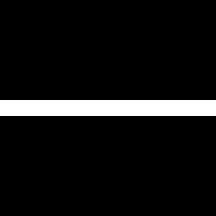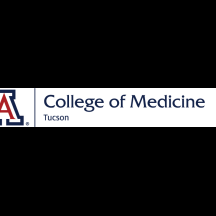The College of Medicine – Tucson is currently fully accredited by the Liaison Commitee on Medical Education (LCME) for an indeterminate term. As the college received full accreditation following its last site visit, the medical education program leading to the MD degree is operating as normal.
The college’s next site visit will occur in academic year 2023–24. Following this limited site visit, the year for the college’s next full site visit will be determined. You may also refer to the LCME’s Medical School Directory for the academic year in which the next accreditation survey visit will occur. You may contact the LCME directly via email at lcme@aamc.org.

- What is the Liaison Committee on Medical Education?
- Why is accreditation important?
- What is the process for LCME accreditation?
- What role do students have in the accreditation process?
- How often does a medical school undergo the accreditation process?
- When do we learn the LCME’s decision?
- What possible actions does the LCME take following a site visit?
- What does a school’s LCME accreditation status mean for students?

What is the Liaison Committee on Medical Education?
The Liaison Committee on Medical Education (LCME) accredits medical education programs leading to the MD degree in the United States and Canada. The LCME is jointly sponsored by the Association of American Medical Colleges (AAMC) and the American Medical Association (AMA) but is an independent organization. The LCME’s scope is limited to complete and independent medical education programs whose students are geographically located in the United States or Canada for their education and that are operated by universities or medical schools chartered in the United States or Canada.
Why is accreditation important?
Accreditation signifies that national standards for structure, function, and performance are met by a medical school’s educational program leading to the MD degree. LCME accreditation establishes eligibility for selected federal grants and programs, including Title VII funding administered by the U.S. Public Health Service. Students enrolled in and graduates of LCME-accredited medical schools are eligible to take United States Medical Licensing Examination (USMLE) Step examinations. These graduates also are eligible to enter residencies approved by the Accreditation Council for Graduate Medical Education (ACGME). Graduation from an LCME-accredited U.S. medical school and successful completion of national licensing examinations are accepted as prerequisites for medical licensure in most states.
What is the process for LCME accreditation?
The LCME evaluates whether a school is compliant with the peer-established accreditation standards, and the accreditation process fosters critical self-assessment among key institutional stakeholders. LCME accreditation is a voluntary, peer-reviewed process of quality assurance that determines whether the medical education program meets established standards. This process also fosters institutional and programmatic improvement.
During the 18–24-month period leading up to a full survey visit, a medical school engages in a process of data collection and analysis (i.e., “the self-study”) that culminates in the submission of a multi-document survey package to the LCME Secretariat and members of the survey team. The survey package consists of the completed Data Collection Instrument (DCI), which contains the school’s answer to questions related to each element; the appendix of supporting documents for each DCI section; the self-study report, which is the school’s self-analysis of its performance in each element; the Independent Student Analysis (ISA), which is a student-developed self-study; and the AAMC Medical School Graduation Questionnaire (AAMC GQ), if available.
Following submission of the survey package, an LCME site survey team visits the school to question faculty, administrators, staff, and students about all aspects of the medical school program, resources, and facilities. The survey team also meets with students and tours the school’s facilities.
For more details about the timeline for various steps in the LCME accreditation process, please see the LCME’s Accreditation Process Overview.
What role do students have in the accreditation process?
Students actively participate in preparations for a full accreditation review and survey visit and provide a student perspective on the medical education program. This includes participating in the self-study and membership on self-study committees; developing, administering, analyzing, and drafting a report on the Independent Student Analysis (ISA) survey; and meeting formally with the survey team during the survey visit.
For more information on student involvement in the accreditation process, see the LCME webpage on Student Participation in Accreditation.
How often does a medical school undergo the accreditation process?
The LCME reviews fully accredited medical education programs every 8 years. Exceptions to the 8-year review are: 1) schools that move from provisional to full accreditation must have a full review 5 years after the initial award of full accreditation, and 2) schools that have a review (status report, limited survey visit, etc.) and are deemed needing a full survey earlier or later than the 8-year term based on findings from that review.
When do we learn the LCME’s decision?
Approximately 2 months following the end of the site visit, the survey team reports its major findings to the dean. Within the subsequent weeks, the survey team submits their full report to the LCME committee, after which the committee discusses the report at their next scheduled meeting and reaches a decision about the type and length of accreditation to grant the medical school.
What possible actions does the LCME take following a site visit?
When considering the accreditation status of an accredited medical education program leading to the MD degree, the LCME may take any of the following actions:
- Continue an accreditation status, with or without specifying the term of accreditation
- Continue accreditation, but place the program on warning or probation
- Deny or withdraw accreditation
The LCME may also require one or more follow-up activities (limited survey visits, consultations, completion of an action plan, and/or status reports) if it determines that the program is not in compliance with all accreditation standards, has unsatisfactory performance in one or more elements, or if the LCME has identified areas that require monitoring where the final outcome could result in noncompliance with one or more accreditation standards or unsatisfactory performance in one or more elements.
What does a school’s LCME accreditation status mean for students?
LCME accreditation allows a medical school to award MD degrees and establishes eligibility for federal funds. Likewise, students enrolled in a medical education program that has full accreditation status are eligible to sit for the United States Medical Licensing Examination (USMLE) and to enter the residency match and begin residency training following their medical school graduation.
Students who are enrolled in a medical education program that has been placed on probation by the LCME are eligible to enter the residency match and begin residency training following their medical school graduation.

